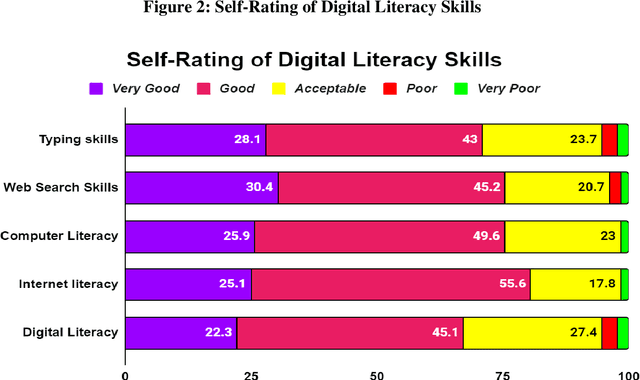Subaveerapandiyan A
Netizens, Academicians, and Information Professionals' Opinions About AI With Special Reference To ChatGPT
Feb 01, 2023


Abstract:This study aims to understand the perceptions and opinions of academicians towards ChatGPT-3 by collecting and analyzing social media comments, and a survey was conducted with library and information science professionals. The research uses a content analysis method and finds that while ChatGPT-3 can be a valuable tool for research and writing, it is not 100% accurate and should be cross-checked. The study also finds that while some academicians may not accept ChatGPT-3, most are starting to accept it. The study is beneficial for academicians, content developers, and librarians.
A Study of Obstacles in Plagiarism Software Subscribing by Colleges in Tamil Nadu
Oct 19, 2022



Abstract:This article attempts to comprehend the current issues and hurdles that Indian colleges affiliated with Tamil Nadu State Universities encounter when trying to subscribe to a software that detects plagiarism. The study goals are to determine whether colleges employ anti-plagiarism software, whether they ensure that their student-given assignments are free of copyright infringement, whether tutors teach about academic misconduct, and what people seem to think of anti-plagiarism software. We surveyed for this study and distributed the questionnaires among college administrators, principals, and librarians.
Digital Literacy and Reading Habits of the Central University of Tamil Nadu Students: A Survey Study
Oct 14, 2022



Abstract:The study attempted to understand the University students' digital reading habits and their related skills. It also has a view of students' preferred sources of reading, whether physical or digital resources. For this study, we conducted a survey study with students and research scholars of the Central University of Tamil Nadu, India. The instrument was a structured questionnaire distributed with various modes. The result found that the majority of the students are well known about digital tools and usage, most of the students are excellent in digital literacy skills and other findings is however they are good in digital literacy even though they like to read print books is their most favorable preference. The results conclude that whatever technological devices are developed and students have also grown their technical knowledge. The result finds out, in education especially reading-wise, students or readers' first wish is printed resources; digital books are secondary to them.
 Add to Chrome
Add to Chrome Add to Firefox
Add to Firefox Add to Edge
Add to Edge